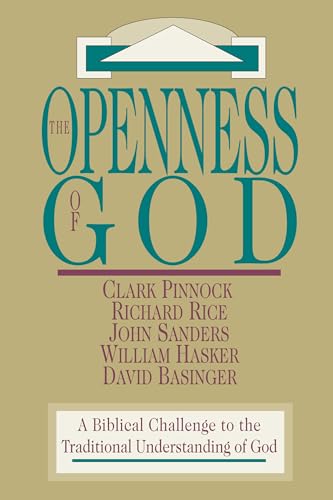Volume 21 - Issue 3
Comment
By Philip D. HillIntroduction
In many respects I wish to identify with Professor Jones’s framework of thought. Like him, I am Reformed in theological outlook and from the Free Church tradition which has come to be the primary expression of Welsh Christianity. Like him, I view English rule of Wales as a catalogue of injustice and oppression (despite my being of English origins myself). In fact, I share with him a (lesser, I think) degree of sympathy for devolution and even Welsh independence. I gladly submit to his erudite learning regarding the function of language. However, I think he is dangerously wrong in two respects. One is theological, the other is political.
A theology of language
Professor Jones believes that diversity is both an original aspect of language and culture and one which will exist in heaven. My understanding is the opposite. Linguistic and cultural diversity is presented in Scripture as a whole, and in Genesis especially, as a result of the fall, an act of judgment on humanity. As judgment, it is the deprivation of original harmony and understanding. As restraint on evil, it is a preventive measure against evil taking absolute hold on human society. What Professor Jones does is to minimalize the stated purpose of Genesis 1–11 in a manner which strikes me as exegetical existentialism. Judgment is not denied by him but rather denuded of its obvious meaning in favour of the exact opposite—a blessing God always intended to give. That argument strikes me as reminiscent of C.H. Dodd’s attempt to redefine ‘the wrath of God’ in Paul.
As Professor Jones begins with the premise that diversity is original, he must face further biblical difficulties. The first is Pentecost. The miracle of tongues is no longer the sensational gift of common understanding by different nationalities (the reversal indeed of Babel) but the sensational approval of differentiation (the ennobling of Babel!). Second, the miracle of the Christian Church is not that people are raised above their cultural and sexual differentiation, but rather that Christ enters into them all in defiance of Galatians 3. Third, the prophetic visions of the Last Days are rendered meaningless when they show the nations going up to worship God in the Temple with one language and with one law. Fourth, the heavenly vision of Revelation has one people redeemed ‘out of every nation’ and not remaining within them. It is difficult to know where in apocalyptic literature the line should be drawn between what is symbol and what is symbolized. But it is not difficult to see the message of eternal harmony, unity and concord for the redeemed which transcends and obliterates forever the divisions of earthly society. Perhaps only those brought up without a clear cultural identity can appreciate this vision. An eternity where no-one is an outsider is heaven indeed to them. That is surely the message. Heaven is essentially something new: transcendence of what is good in this world, and reversal of what is bad. Bobi Jones’s vision falls short just here. If you belong already on earth you are in and in for ever. If (like me) you do not belong exclusively to a single culture, you are dispossessed forever. That seems to me a rather un-heavenly vision.
Political issues
Professor Jones uses his theological understanding to absolutize the existence of separate cultural, racial and linguistic groups. This, I believe, is flatly contradicted by Acts 17 and Paul’s clear conviction that nations rise and fall in the sovereign purposes of God. Not only the beginning, but the end, of a nation’s allotted time lies in the hidden wiil of God. No explanation is offered in Scripture of where or why these boundaries in time are fixed, except the partial one that the nations surrounding Israel were judged by their treatment of God’s people. Whatever the case, it is enough to say that nations do fall as well as rise and do so because God has determined as much. The losing of languages and cultures are as much Providence as the creating of them originally.
The believer must accept the providence of God. When that is a fait accompli the matter is theologically simple (not by any means simple morally or emotionally, of course). But what about turbulent times, when the process of change is not yet inevitable? Surely, then, everything consistent with good may be used to promote security and well-being. This includes the use of weaponry as far as I am concerned, but only by a legitimate government (whether in situ or exiled) for a legitimate purpose against a declared enemy (not against internal and otherwise law-abiding dissent). In modern society it also includes using to the full the democratic process of persuasion, debate and lawful political action. This may lead to apparently outrageous behaviour, of course. Both nationally and internationally, an oppressed cultural or racial group may seek to make controversy over practices which are assumed by the uninformed or casual observer to be just and moral.
Evangelicals and controversy
Evangelicals have historically disliked such robust political activism. We are stronger on eternal concerns than temporal rights. We have tended to favour passivity and conservatism in domestic politics. And sadly we have been over-enthusiastic to maintain solidarity by the threat of rejection from our ranks. In this respect, I agree with Professor Jones that Wales and the Welsh peoples remain shabbily treated at the bar of both law and popular prejudice, and that no significant voice of protest has been raised from within English evangelicalism (until recently by the Evangelical Alliance).
I believe his call for justice is biblically and theologically defensible, but not for his reasons. That the biblical and moral basis lies in eternal significance for every language and culture seems to me to be confused, if not polemical. It reminds me of a certain tendency in evangelical life. Anti-slavery campaigners wooed evangelical support on the grounds that slaves had eternal souls to save rather than temporal rights to enjoy. Victorian reformers stressed the spiritual dangers of young girls living without privacy rather than the political injustice of whole families living in squalor.
If our disagreements are only at the level of theory rather than practice, do they matter? I believe so for two reasons. The first is that truth is truth. The day when Christians cease to debate and to speak according to truth for its own sake will be a sad day for Christianity The second is that wrong arguments have a bad habit of coming back to haunt LIS, especially in politics. Rhetoric becomes prejudice alt too easily. And prejudice with a gun in its hand may become a callous murderer. I think that is my greatest fear with regard to Wales. Ireland is, after all, only next door.
Philip D. Hill
Linslade, Beds.






